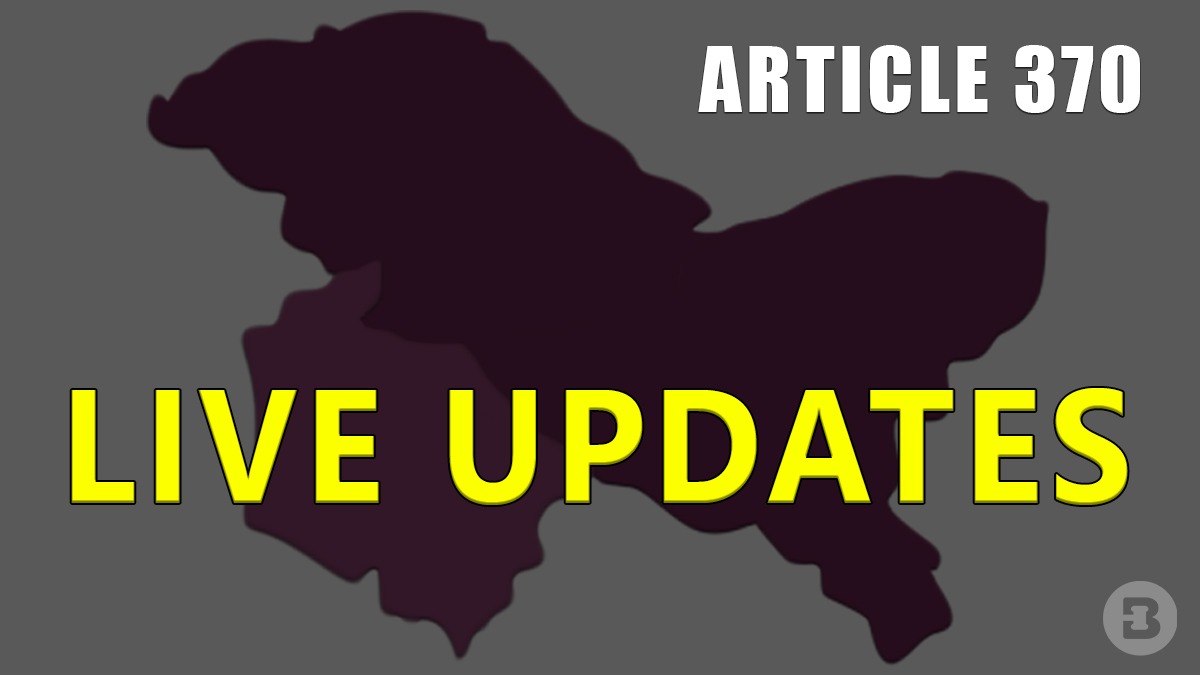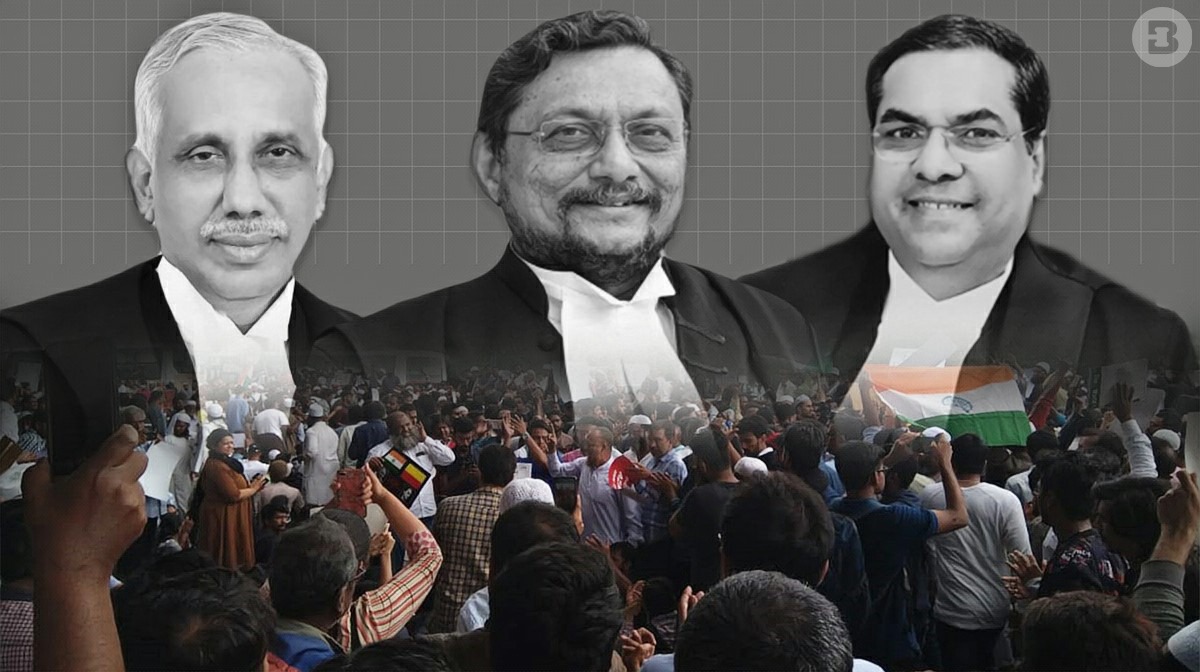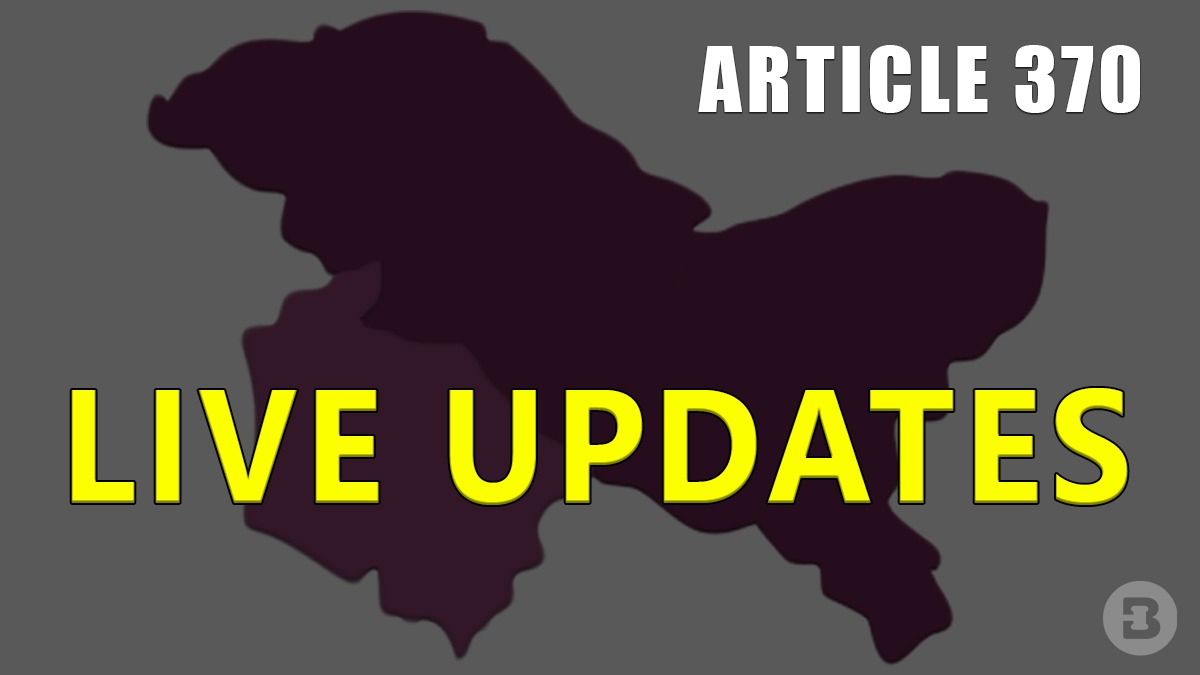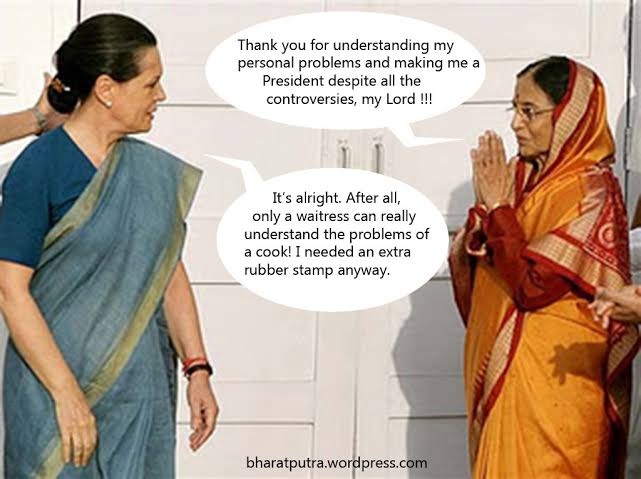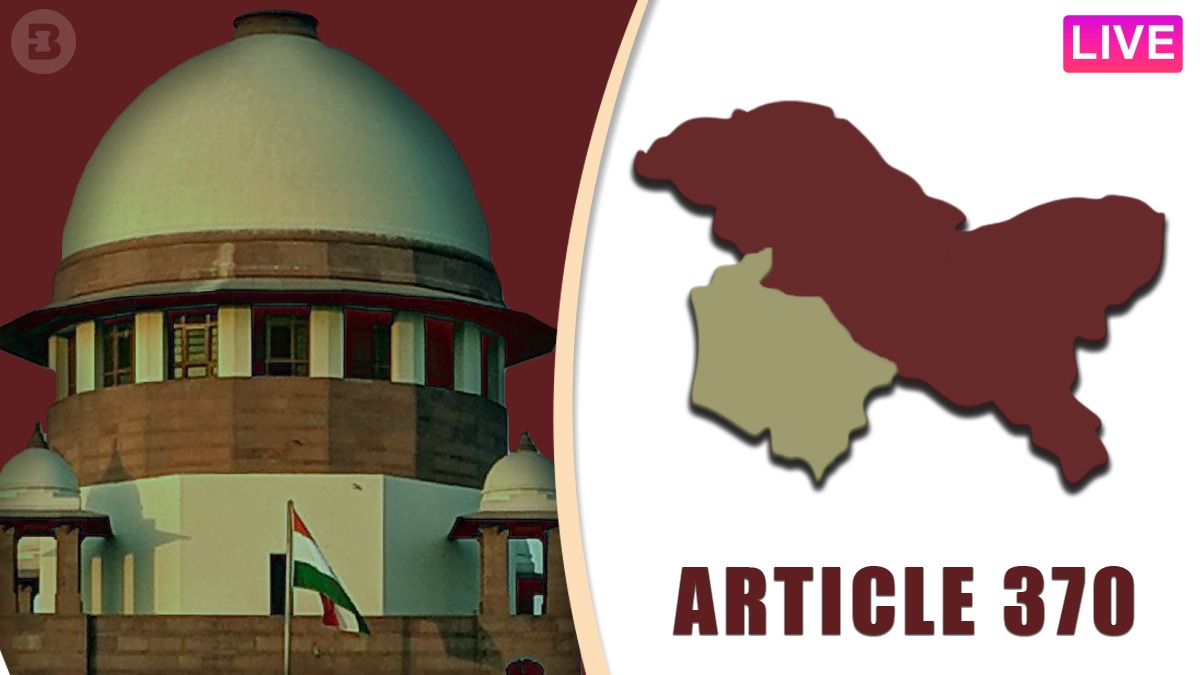
He submits that the basis of the Instrument was to effectuate sovereignty of J&K. #Article370 #Kashmir
Justice SK Kaul asks Parekh if whatever was done both before or after the abrogation becomes void. #Article370 #Kashmir #supremecourtofindia #SupremeCourt
Justice Kaul - “There is a question mark on that argument”
#Article370 #Kashmir #supremecourtofindia #SupremeCourt
#Article370 #Kashmir #supremecourtofindia #SupremeCourt
He further insists that concurrence of the State is paramount in matters of governance for state of J&K.
#Article370 #Kashmir #supremecourtofindia #SupremeCourt
#Article370 #Kashmir #supremecourtofindia #SupremeCourt
Parekh reiterates that prior recommendation of the Constituent Assembly is a must to modify the Article.
#Article370 #Kashmir #supremecourtofindia #SupremeCourt
Parekh - Operatively, Article 370 was over after 1957.
#Article370 #Kashmir #supremecourtofindia #SupremeCourt
Parekh: Yes Milords.
#Article370 #Kashmir #supremecourtofindia #SupremeCourt
#Article370 #Kashmir #supremecourtofindia #SupremeCourt
#Article370 #Kashmir #supremecourtofindia #SupremeCourt
#Article370 #Kashmir #supremecourtofindia #SupremeCourt
No exercise of Presidential Orders could have been carried out without the concurrence of the “Will of the People”, Parekh. #Article370 #Kashmir #supremecourtofindia #SupremeCourt
“The Constitution-makers were obviously anxious that the said relationship should be finally determined by the Assembly of the State itself”.
#Article370 #Kashmir
#Article370 #Kashmir #SupremeCourt #supremecourtofindia
He submits that the crux of all of these judgements is to bring out the relevance of:
1) Instrument of Accession
2) Powers vested in Constituent Assembly #Article370 #Kashmir #supremecourtofindia
#Article370 #Kashmir #supremecourtofindia
#Article370 #Kashmir #supremecourtofindia
1) The instrument of Accession;
2) The issue of Kashmir lies with the UN;
3) The discourse about referendum by the Maharaja and his successors.
#Article370 #Kashmir #supremecourtofindia
1) Instrument of accession
2) Stand still agreement
3) Merger Agreement.
#Article370 #Kashmir #supremecourtofindia
#Article370 #Kashmir #supremecourtofindia
Power of the Maharaja emanating from clause 8 of the Instrument of Accession now vested with the State.
#Article370 #Kashmir #supremecourtofindia
#Article370 #Kashmir #supremecourtofindia
#Article370 #Kashmir #supremecourtofindia
#Article370 #Kashmir #supremecourtofindia
#Article370 #Kashmir #supremecourtofindia
Sampat Prakash judgment specifically stated that in light of the continuance of the circumstances, 370 has to stay.
#Article370 #Kashmir #supremecourtofindia
#Article370 #Kashmir
This was indeed a “Constitutional Fraud”, Shah adds.
#Article370 #Kashmir #supremecourtofindia
“Why not?”, Shah argues. “It has been used in all the basic structure judgments!”
#Article370 #Kashmir #supremecourtofindia
#Article370 #Kashmir
#Article370 #Kashmir #supremecourtofindia
#Article370 #Kashmir #supremecourtofindia
He insists that the Maharaja had specifically put “Referendum” in the Instrument.
#Article370 #Kashmir #supremecourtofindia
At this juncture, SG Tushar Mehta interjects. He says, "The nation knows who “Separatists” are. These statements are not appreciated."
#Article370 #Kashmir #supremecourtofindia
Senior Advocate Rajeev Dhavan states that these are some of the most brilliant arguments advanced.
#Article370 #Kashmir #supremecourtofindia
He then refers to CO 48 of 1954.
Next, he refers to Constituent Assembly debates.
#Article370 #Kashmir #supremecourtofindia
#Article370 #Kashmir #supremecourtofindia
#Article370 #Kashmir #supremecourtofindia
#Article370 #Kashmir #supremecourtofindia
#Article370 #Kashmir #supremecourtofindia
#Article370 #Kashmir #supremecourtofindia
Shah - Will do so tomorrow.
#Article370 #Kashmir #supremecourtofindia


